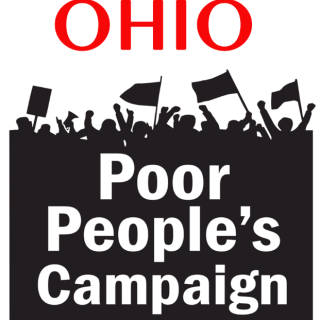Advertisement
Sunday, January 14, 2018, 2pm
Scores of students, community members and people of faith from over 20 campuses across nation will join together with congregation and community members to demonstrate at the Wendy’s located at 2004 N. High St. The protest is a culmination of a weekend of student strategizing alongside the Coalition of Immokalee Workers to further engage their communities and campuses in the Wendy’s Boycott during 2018.
What: Demonstration to call on Wendy’s to sign the CIW’s Fair Food Program and for OSU to cut their contract with the fast food giant.
Where: Wendy’s located at 2004 N High St
When: Sunday, January 14 at 2 PM
This MLK Day weekend, in the non-violent direct action organizing tradition of Dr. Martin Luther King Jr., farmworkers and students take to the streets to once again call on Wendy’s to acknowledge the human rights of farmworkers and agree to join the Fair Food Program. OSU students have been campaigning for nearly two years to get their administration to cut their contract with Wendy’s, and rom January 12-15th, students from over 10 universities are gathering in the city that Wendy’s calls home to stand in solidarity with the Coalition of Immokalee Workers as they plan to mobilize a network of allies for the upcoming 5-day Freedom Fast which will be taking place in NYC outside of the offices of Wendy’s Executive Nelson Peltz. This protest marks a significant milestone in a year of fasting at the doors of the burger chain, beginning with OSU student fasts and nation-wide rolling student and faith community fasts in the Spring of 2017 and continuing into March’s upcoming Freedom Fast.
For more than four years, Wendy’s has steadfastly refused to join the Coalition of Immokalee Workers’ (CIW) Presidential Medal-winning Fair Food Program (FFP) to protect farmworkers’ human rights in the retailer’s supply chain. Instead, the fast-food company shifted its tomato purchases from FFP farms in Florida to Mexico, where workers face widespread labor abuses, including sexual harassment and assault, without access to protections. Though human rights violations in Mexican agriculture are well-documented, Wendy’s has responded to concerns about abuse in their supply chain by saying simply, “We are quite happy with the quality and taste of the tomatoes we are sourcing from Mexico,” in an Oct. 2016 statement.
The FFP is widely recognized as the single most effective program combating and preventing sexual abuse and forced labor in agriculture today, doing that through the commitment of 14 major food brands who purchase exclusively from producers that uphold a strict human rights code of conduct. All of Wendy’s major fast food competitors including McDonald’s and Burger King participate in the FFP. Last year, the Equal Employment Opportunity Commission singled out the FFP as a “radically different accountability mechanism” in preventing sexual harassment in the fields, and the United Nations called the Program “an international benchmark” for human rights protections.
The Student/Farmworker Alliance (SFA) is a national network of students and youth organizing with farmworkers to eliminate sweatshop conditions and modern-day slavery in the fields. We work in partnership with the Coalition of Immokalee Workers (CIW), a Florida-based, membership-led organization of mostly Latinx, Haitian and Mayan Indigenous low-wage workers. We understand our work as part of larger movements for economic and social justice.
About the Fair Food Program: The Fair Food Program is a groundbreaking partnership among farmworkers, Florida tomato growers, and 14 major food retailers, including McDonald’s, Burger King, and Walmart, heralded as “the best workplace-monitoring program” in the US on the front page of the New York Times. Participating retailers agree to purchase exclusively from suppliers who meet a worker-driven Code of Conduct, which includes a zero-tolerance policy for slavery and sexual harassment. Retailers also pay a “penny-per-pound” premium, which is passed down through the supply chain and paid out directly to workers by their employers. Since the Program’s inception in 2011, buyers have paid over $26 million into the FFP. In 2015, the Program expanded for the first time beyond Florida to tomato fields in Georgia, North Carolina, South Carolina, Virginia, and New Jersey, and in the 2015-2016 season, the Fair Food Program expanded to two new Florida crops, strawberries and bell peppers.



